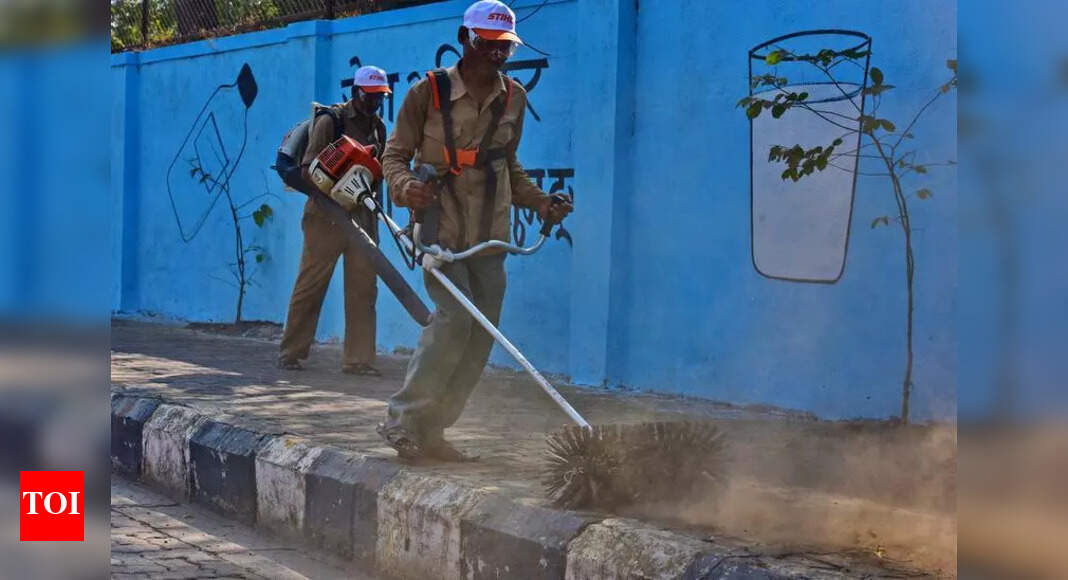Health
Pune Assembly Addresses Inadequate Cleaning Staff Amid Concerns

The ongoing monsoon session of the Maharashtra Assembly revealed significant concerns regarding the cleaning staff in Pune. Bapu Pathare, the local Member of the Legislative Assembly (MLA) from Wadgaon Sheri, highlighted that the Pune Municipal Corporation (PMC) is struggling to maintain cleanliness due to a shortage of adequate sweeping personnel. Approximately 8,000 workers are designated for cleaning tasks, yet a staggering 25% of them are frequently absent, hampering the city’s cleanliness efforts.
In response, Madhuri Misal, the Minister of State for Urban Development, acknowledged the issue and committed to obtaining further details about the staffing situation. The discrepancy between the number of workers in Pune compared to other municipal corporations has raised eyebrows. Pathare pointed out that while the geographic area managed by PMC is larger than that of the Brihanmumbai Municipal Corporation (BMC), it employs significantly fewer staff for road sweeping and related activities, with BMC’s numbers exceeding 28,000.
The assembly session also addressed concerns regarding the tendering process for sweeping work. In a separate query raised by Bhimrao Tapkir, MLA for Khadakwasla, Misal disclosed that the entire tendering process had been canceled due to findings that costs were inflated by approximately 7%. She emphasized that PMC was instructed to investigate these discrepancies and take necessary actions to rectify the situation.
Illegal Dumping of Construction Waste
The session did not solely focus on staffing issues; it also tackled environmental concerns. Siddharth Shirole, MLA for Shivajinagar, called for immediate action against the illegal dumping of construction debris on tekdis, or hillocks, throughout Pune. He asserted that this practice poses a significant threat to the environment and public health.
In response to Shirole’s request, Ganesh Naik, the State Forest Minister, pledged to enhance monitoring efforts in collaboration with the forest department, police, and revenue department. He announced plans to install CCTV cameras in areas prone to illegal dumping to deter such activities and hold perpetrators accountable.
These discussions during the assembly highlight not only the challenges of maintaining cleanliness in Pune but also the city’s commitment to addressing environmental concerns. As authorities work to rectify these issues, residents hope for improved conditions and a cleaner urban environment.
-

 World7 months ago
World7 months agoSBI Announces QIP Floor Price at ₹811.05 Per Share
-

 Lifestyle7 months ago
Lifestyle7 months agoCept Unveils ₹3.1 Crore Urban Mobility Plan for Sustainable Growth
-

 Science6 months ago
Science6 months agoNew Blood Group Discovered in South Indian Woman at Rotary Centre
-

 World7 months ago
World7 months agoTorrential Rains Cause Flash Flooding in New York and New Jersey
-

 Top Stories7 months ago
Top Stories7 months agoKonkani Cultural Organisation to Host Pearl Jubilee in Abu Dhabi
-

 Science7 months ago
Science7 months agoNothing Headphone 1 Review: A Bold Contender in Audio Design
-

 Sports6 months ago
Sports6 months agoBroad Advocates for Bowling Change Ahead of Final Test Against India
-

 Top Stories7 months ago
Top Stories7 months agoAir India Crash Investigation Highlights Boeing Fuel Switch Concerns
-

 Business7 months ago
Business7 months agoIndian Stock Market Rebounds: Sensex and Nifty Rise After Four-Day Decline
-

 Sports6 months ago
Sports6 months agoCristian Totti Retires at 19: Pressure of Fame Takes Toll
-

 Politics7 months ago
Politics7 months agoAbandoned Doberman Finds New Home After Journey to Prague
-

 Top Stories7 months ago
Top Stories7 months agoPatna Bank Manager Abhishek Varun Found Dead in Well









